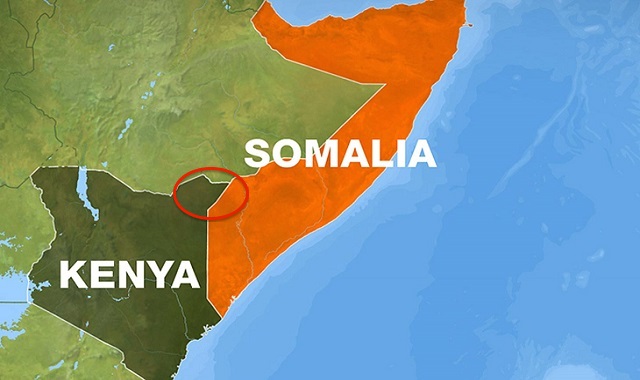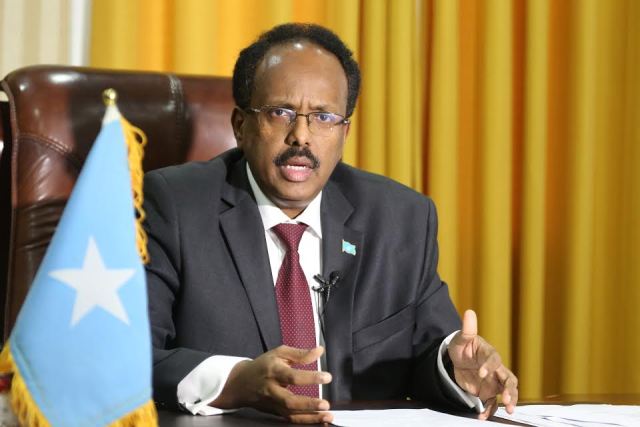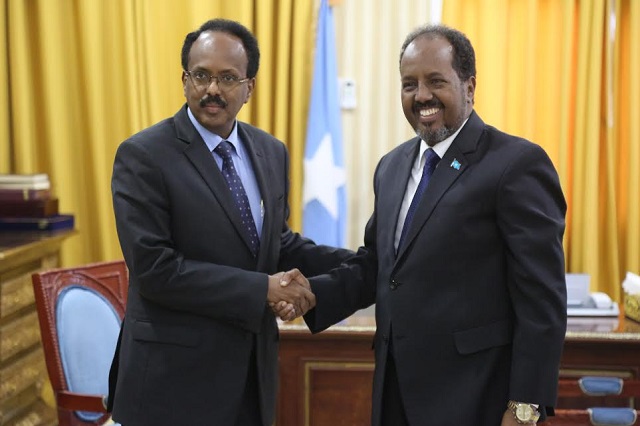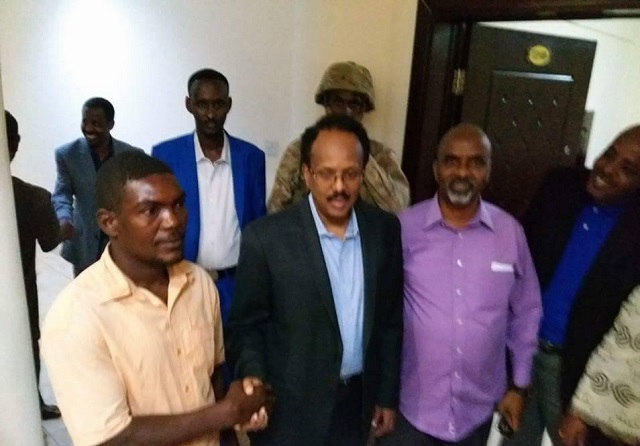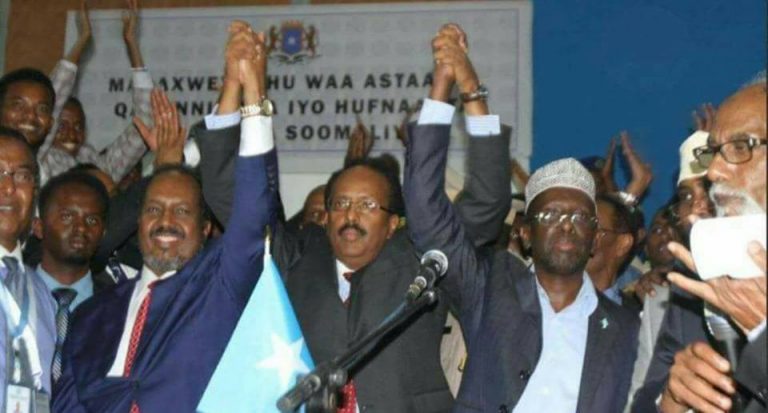Liban Obsiye & Sakariye Hussein
The newly Cabinet adopted Somali Foreign Policy places Diaspora engagement as one of the key pillars to the overall achievement of the policy goal of a Peaceful, progressive and prosperous Somalia playing a major role in the region and the world.
It is estimated that over 2 million Somalis live across the world. This is a combination of first generation Somalis and their offspring’s who may be born elsewhere but are allowed by both Somali and their adopted country’s nationality laws to have dual citizenships. The dual nationality rules empower the Somali Diaspora to be able to contribute more openly, consistently and at more influential levels of society than they would be able to had this rule not existed.
Today, the Somali Diaspora contribute heavily to Somali politics, business and civil society. In the current government, some of the key Ministers are from the Diaspora. More, importantly, in the Somali public institutions, the engines of policy, the Diaspora are employed as advisers, civil servants and consultants. Furthermore, in the coming months, and after the planned Parliamentary and Presidential elections, more national institutions and committees will be established and there will certainly be further significant contributions made by the Diaspora within these establishments.
Given the above, it is clear that the Somali Diaspora are already playing an enormous role in Somali society on the ground and, given that Foreign Policy depends on internal progress and institutional strengths and capacity, it is arguable that they are jointly shaping the Somalia the world sees and recognises as progressing.
Somali Foreign Policy rightfully envisages the role of the Diaspora to be far more than just civil servants returning to work in Somalia. Of course, with the skills, experience and connections gained abroad, the Diaspora input in the continually evolving and innovating Somali institutions is important but their roles are wider than this.
Global Somali Diaspora (GSD) is a great example of what the Somali Diaspora can achieve. It has successfully managed to mobilize, advocate, empower and engage with the Somali Diaspora world-wide. More recently, GSD held a Diaspora showcasing event in Mogadishu with the aim of encouraging the Diaspora to invest in their homeland and encourage positive and stronger connections between the locals and the Diaspora.
Most people who may have never known Somalia or Somalis other than through what they saw in the mainly biased and fear perpetuating media will certainly have a very negative image of both. However, with positive people to people contact, this barrier can be broken down and myths can be challenged both by the Somalis within their own communities and by the wider community who have had positive experiences with the Somali Diaspora.
This people to people bond is also the best means of transmitting Somali culture to others who can benefit from Somalia’s excellent cuisine, beautiful and rich poetry as well as the Islamic religion which is close to Somali hearts but also much misinterpreted today due to fear and ignorance.
The Cabinet approved Somali Foreign Policy rightly focuses on investment promotion as a means of economically empowering Somalis and the nation’s economy to sustain lasting peace, progress and prosperity for both the people of Somalia and their brothers and sister in the neighbouring States as well as the world.
H.E. Dr. Abdusalam H. Omer, Somalia’s Minister of Foreign Affairs and Investment Promotion, in almost every meeting, interview and presentation across the world referred to the importance of an investment led peacebuilding in Somalia and the crucial role the Diaspora must play alongside their fellow citizens to make this a reality.
Today, across Somalia, many members of the Diaspora are returning to invest in Somalia’s rich natural resources. Many studies and consultations have been carried out and disseminated by international partner nations and institutions with Somali led organisations like Transparency Solutions and the Heritage Institute for Policy Studies. These studies and consultations highlight opportunities and obstacles to investing in Somalia. The most recent of these reports undertaken by Shuraako with diverse partners[1] clearly evidenced that while some Diaspora are already on the ground investing, more wanted to join them and were eagerly encouraged by the Somali government’s welcoming message and promised support on the ground once they invest.
The Somali Diaspora must play another key role in investment promotion alongside investing themselves. They must, like their Indian, Chinese, Irish and Nigerian counterparts, form the business partnerships to raise funds to bring large scale investment to Somalia in key sector like Infrastructure which is crucial for all investments.
Policies are easier to draft than to implement. However, in this scenario, in order to make the Somali Foreign Policy effective, the Somali Government and Somali Diaspora must work closely together. There must be regular dialogue between the senior Government leaders and the Diaspora at least twice a year to agree areas of collaboration and partnership. The Somali Foreign Ministry’s Office of Diaspora Affairs must strengthen its partnerships with Diaspora organisations across the world and seek to embed a culture of partnership for the development of Somalia and its people both at home and in the Diaspora.
Facilitating dialogue and engagement between Somalis living across the world and the Government of Somalia is not difficult given that Somalia has Embassies in the majority of places in the world and more are planned in major cities like London. After a strategy is agreed between the Diaspora and the Somali Government, Diaspora organisations and Somali Embassies must work closely to achieve the desired goals.
Enhancing people to people relations, attracting investment, cultural exchange and partnership across policy issues can strengthen vital bilateral ties. Diaspora Advocacy and their participation in policy discussions and networks that most concern their lives and the progress of Somalia as a whole can also change the direction of debates and local and international action. This is something that can be achieved at the international and local level by diverse Diaspora partnerships, strategic thinking and coordinated action.
An example of the above was the collective international efforts of the Somali Diaspora in campaigning for better remittance corridors in this time of heightened concern of terrorism financing both in the UK and USA. This coordinated and well-articulated campaign immediately impacted on the way these two Government’s approached the remittance issue. This is evidence that Diaspora action can make their host nations change policy directions where they are effective.
A divided, weak and ineffective Diaspora is a liability for any Foreign Policy, especially, one of a nation turning the corner away from conflict exacerbated by the complexities of tribe. Therefore, it is important that the Somali Diaspora, individually and collectively, unite, organise and campaign as one on all relevant policy matters concerning their mother nation.
The Somali Diaspora globally, alongside the envisaged and actual advocacy and lobbying they undertake for their nation, must give a hand up to their Government’s by been a critical friend, especially, in the absence of Parliamentary Political Parties, effective opposition and strong civil society. They must also plant strong roots within Somalia and among the Somalia people resident in the country by working closely with them and not arrogantly shutting them out.
The Diaspora must not always say YES but seek to improve Somali governance and society through positive input and actions. This is the best way to continually improve the investment environment for FDI and protect and advance the credibility and impact of Somali Diplomacy in all its forms both at home and on the international stage.
Somalia, despite the limited remaining security challenge, is changing and the progress been made by both the people and nation is genuine. The Government of Somalia and its representatives continue to remind us of this in all events both at home and abroad. However, the best evidence of this is that many Diaspora are returning for holidays, business and to explore Somalia. This is the best illustration of progress in Somalia. It is also the best evidence that the Diaspora must lead by example so that the rest of the world can follow.
Somalia is turning the corner towards stability and progress. This is acknowledged by both Somalis at home and in the Diaspora as well international partners of whom many are now based in Mogadishu on a permanent basis. However, there is still much to be achieved by all groups, including the Diaspora, to change the narrative and make Somalia’s Foreign Policy the success it can be.
Liban Obsiye is a senior adviser to the Somali Foreign Minister.
libanbakaa@hotmail.com
@libanobsiye (twitter)
Sakariye Hussein is a member of the Senior Management team of Global Somali Diaspora.Sakariya100@hotmail.co.uk
@Jawdheer (twitter)
[1] http://shuraako.org/events/somali-diaspora-investment-survey-meeting

